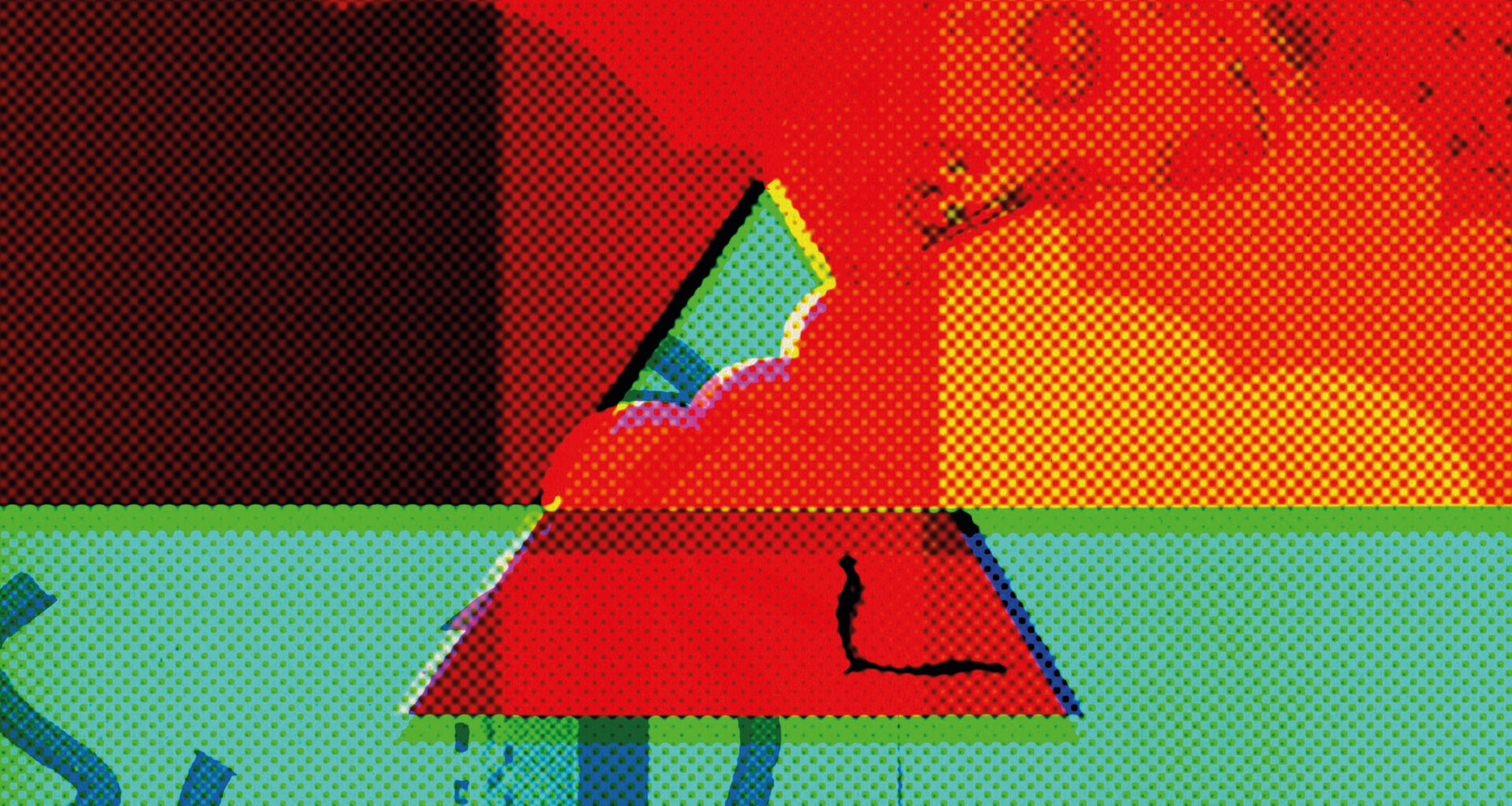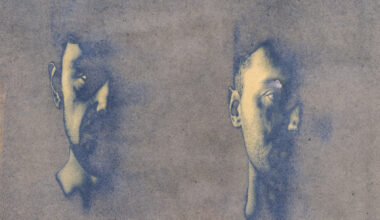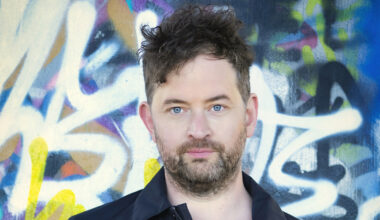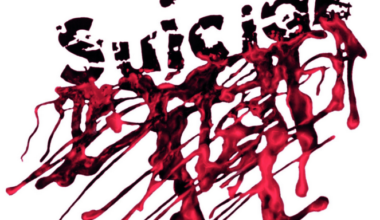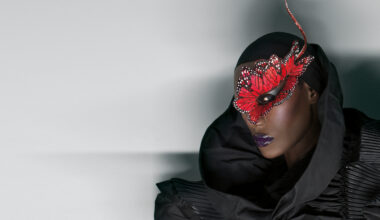After a two-decade hiatus, Birmingham outfit Plone have returned with a new album, ‘Puzzlewood’, and it’s packed with nostalgic vintage synth sounds. So why on earth has it taken them so long?
Electronic music can sometimes tend towards the dystopian – a fitting soundtrack for Orwellian oppression, or robots crushing human skulls underfoot. The work of Plone, however, is anything but. Describing it, you inevitably reach for adjectives like optimistic, innocent and wistful. The upbeat melodies of their 1999 debut, ‘For Beginner Piano’, transports listeners to a childhood idyll of sun-dappled tree houses, orange squash, and Mr Whippy van chimes. More than 20 years on, two-thirds of the original group have now finally completed a follow-up album (actually their third LP, but we’ll come back to that). It’s called ‘Puzzlewood’ and it’s on Ghost Box, home of all things hauntological.
The Plone story gets underway in 1994 in Moseley, a bohemian suburb of Birmingham, which became a hotbed of musical creativity in the late 90s with the emergence of wonky experimentalists Pram and neo-psych types Broadcast, along with less well-remembered names like Magnétophone and L’Augmentation. With band members sharing influences, resources, and in some cases houses, it was a tight-knit scene.
“Everybody had a music project going on,” says Mike Johnston. “Plone started with Mark Cancellara and me playing guitar. Then we began working with a one-second sampler, a four-track, and a delay pedal. When you don’t know how to play an instrument, it’s really good fun just to make collages of noise.”
By 1997, the group, initially called Rehab, had evolved from these unstructured early days into a more melodic outfit and changed their name. What exactly is a Plone, anyway?
“It’s an entirely made-up word,” replies Johnston with the air of a man who wishes he’d picked something self-explanatory. “It came from trying to read my mother’s handwriting, which is quite difficult. When she used to write ‘Please phone home’, it looked like ‘plone’. But the idea in our heads was that it sounded like a cartoon ricochet from a comic strip.”
The addition of Mike “Billy” Bainbridge completed the line-up and the trio set about some full-scale analogue synth fiddling.
“Back then, they’d be in the corner of music shops, unloved and unwanted,” says Johnston. “The opposite of how it is now. These were not the big-name classic synths, but some pretty obscure ones. To us they were fantastic, though.”
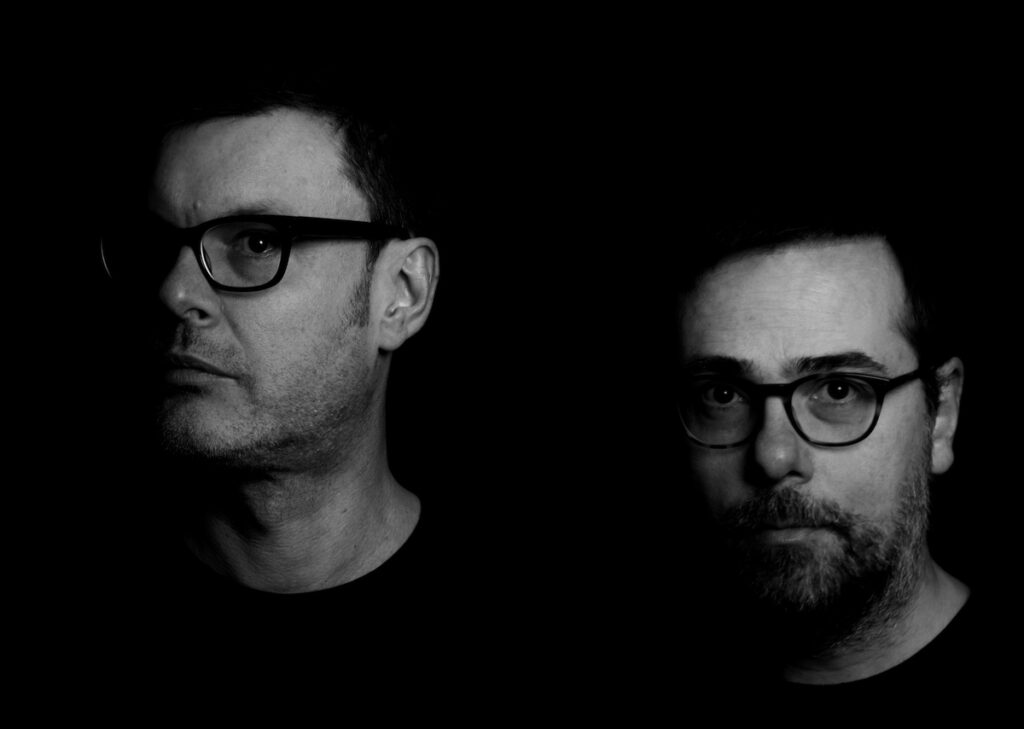
Bainbridge had a Roland Juno-60, while Johnston fondly recalls a Teisco S100P and, rather less fondly, a Korg Polysix with life-threatening properties…
“Unfortunately, it never really worked properly,” he notes. “And it used to electrocute me.”
“You threw it in a skip, didn’t you?” says Bainbridge.
“Yes, that was its final performance, as it went through the air into the skip,” laughs Johnston. “I had to carry it around everywhere and it was so bloody heavy. It was a huge relief to get rid of it.”
As this tragicomic tableau suggests, Plone’s creative bent was partly a matter of economics.
“Let’s say 50 per cent, because there are obviously economic circumstances, but then there’s also what you’re into,” notes Johnston. “And being a teenager in the mid-80s, you either went heavy metal or synthpop.”
“The music itself was, to some extent, born of what those instruments sounded like,” adds Bainbridge. “So it was lucky that the cheap instruments we picked up sounded great.”
It will come as little surprise to anyone who’s heard the recordings that followed, starting with their 1997 single ‘Press A Key’, that the trio counted the boffins of the BBC Radiophonic Workshop as a significant influence.
“We were into all the Radiophonic stuff,” says Johnston. “We really liked Martin Rev’s first album too. ‘Mari’ was the big one on there. I think that song, more than anything else, sounded like a prototype of what we wanted for Plone.”
Not all of the music that fed into the band’s identity was electronic, though. Johnston also gives credit to the 60s and 70s pop he soaked up as a kid on family car journeys.
“The one that the family could actually agree on would have been Simon & Garfunkel,” he says. “They’re incredibly melodic songwriters.”
“If you take that traditional songwriting formula and give it an analogue synth aesthetic, it makes something interesting,” says Bainbridge. “I think we do tend to follow those pop structures a bit more than other electronic musicians. The other influences would include things like The Beach Boys. Not an obscure group by any means, but unusual from an electronic perspective.”
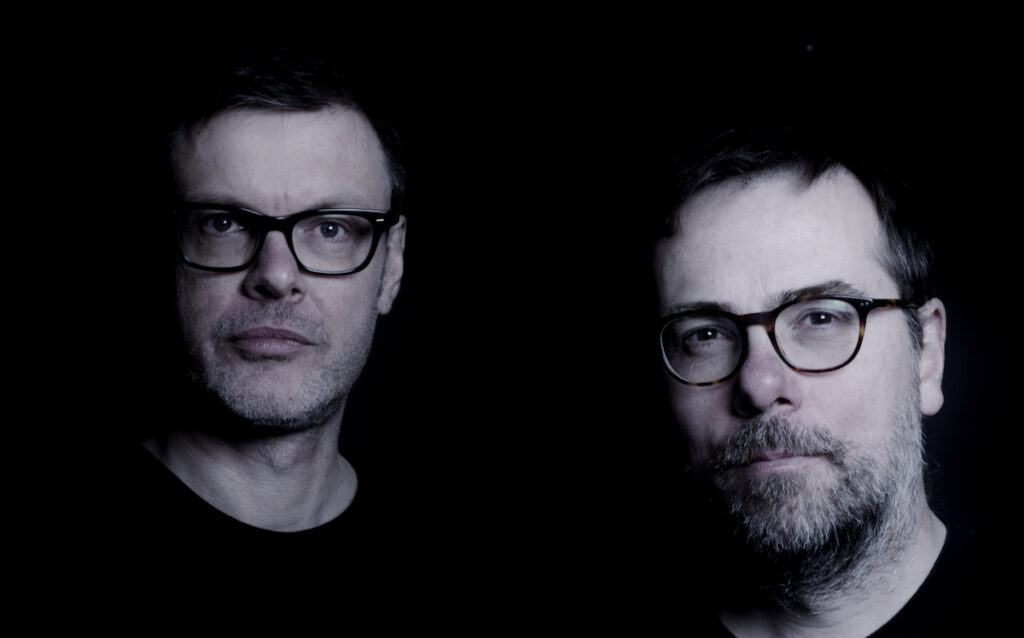
Quite why so much interesting music was bubbling up in Birmingham in the 1990s, like exotic flowers sprouting from cracks in the concrete, is a mystery to both Plone men.
“Maybe it was a form of escapism from living in an industrial city,” suggests Bainbridge.
Though the individual bands were quite distinct, it is possible to detect elements of a shared ethos.
“The tag that’s been given to it since then is retrofuturism,” says Johnston.
Interviewed in 2012, Pram vocalist Rosie Cuckston explained it by saying, “It was a nostalgia for a time when people were optimistic about the future and did see great freedom in what might be coming”.
Whatever the reason for the thematic similarities, it’s clear that being surrounded by like-minded musicians acted as a spur to creativity. For one thing, it gave Plone the confidence to go their own way.
“Prior to that first Plone period, we’d done some gigs in clubs playing techno all-nighters in side rooms,” recalls Johnston. “It was fucking exhausting. At the time, we were consciously trying to please the audience. Then the primary Plone impetus became to satisfy ourselves and jettison any anxiety about what other people thought of it.”
“And we knew there was a receptive audience for that sort of thing because of bands like Pram and Broadcast,” adds Bainbridge.
Other artists helped to give them a leg-up too. The ‘Press A Key’ single, for example, was produced by Pram’s Max Simpson. Johnston also credits Klub Catusi, a club night that Simpson was involved with, where the DJs spun lounge music and charity shop Moog grooves to a backdrop of lava lamp projections, transforming a grimy corner of Balsall Heath, which was then Birmingham’s red-light district.
“I remember Klub Catusi being somewhere I’d bump into people in other bands,” says Johnston. “Everybody on the scene was into a lot of the music that was played there.”
“There was Oscillate too,” says Bainbridge. “That was an electronic night, but more Warpy.”
Speaking of Warp, by 1998 Plone had joined the Sheffield label’s roster. This also came about in part via another Moseley band who were already on the imprint.
“We’d been doing support slots with Broadcast,” explains Johnston. “Warp came to see them and then ended up seeing us too.”
“We were headlining a show in Birmingham and Warp co-owner Rob Mitchell approached me afterwards and said he liked us,” says Bainbridge. “He told us to send him a demo. He’d been alerted to us by James Cargill from Broadcast.”
On the face of it, Plone were improbable labelmates for the likes of the more austere Aphex Twin and Autechre. Did they feel at home?
“We stood out quite a bit,” admits Bainbridge.
“Musically, there was quite a wide range of acts on Warp, but we did feel like we were at the far end of the spectrum,” says Johnston. “There were a lot of cool people there, though. And Rob Mitchell was lovely.”
By the turn of the millennium, everything in the garden was rosy for the trio. Their 1998 single ‘Plock’, with its vocoded lyrics evoking childhood (“Every day / Come out to play / Call round for me / Sit in my tree”) may be the quintessential Plone track. It made John Peel’s end-of-year Festive 50, a feat the band repeated in 1999 with ‘Be Rude To Your School’, a track on the ‘For Beginner Piano’ album.
Plone were hard at work on a follow-up to ‘For Beginner Piano’ when Rob Mitchell was struck down by cancer and the untimely death of the Warp boss in October 2001 left the record in limbo.
It is still unfinished, with a surfeit of material yet to be sorted into a final track listing. Mitchell had been the band’s champion at Warp and, without him at the helm, Plone were effectively dropped, the three members going their separate ways not long afterwards.
In the years that followed, Johnston released a handful of singles under the moniker Mike In Mono and Bainbridge formed Seeland with Broadcast guitarist Tim Felton. Mark Cancellara left making music behind, although the others say he’s currently “building Birmingham’s biggest sound system”. Invest in earplugs, Brummies. Plone’s “lost album” eventually leaked online some time ago and the tracks have since been reworked to the point where they could, theoretically, see the light of day.
“It’s been re-recorded, remixed, remastered,” says Bainbridge. “It’s ready to be finished off.”
“But we’ve probably gone as far as we can for now, unless somebody wants to release it,” says Johnston.
Is that an open call to any interested parties?
“Yeah, write that,” laughs Johnston.
For the time being, Plone are far too busy thinking about ‘Puzzlewood’, an album named after an ancient woodland in the Forest of Dean. Releasing it on Ghost Box was a no-brainer. In many ways, what Plone were doing in 1999 anticipated the hauntology label’s aesthetic. They were a Ghost Box act before Ghost Box even existed.
“Yeah, we were the ghost,” laughs Johnston.
“Jim Jupp from Ghost Box has said we were an influence on him,” says Bainbridge. “And googling us, I’ve seen people saying, ‘They should get back together and put stuff out on Ghost Box’.”
Back by popular demand, then?
“Yeah, we’re just giving the public what they want,” deadpans Johnston.
So why has it taken them two decades to get their act together?
“We’re trying to break the record of The Avalanches and My Bloody Valentine,” jokes Bainbridge. “We split up in 2001 and didn’t do anything for the first 10 years.”
“We did start making music again in about 2011,” says Johnston. “But I didn’t really think we were going to be releasing another Plone album until Ghost Box came along.”
While the ‘Puzzlewood’ recording sessions began in earnest at that point, some tracks on the album have a much longer history.
“‘Chalk Stream’ stretches back to work I was demo-ing just before we split up,” says Johnston.
“And ‘Watson’s Telescope’ dates from just after the split,” says Bainbridge.
So aside from the inevitable – grey hairs, inability to get out of a chair without grunting – how does the Plone of 2020 differ from the 1999 model?
“Technologically, it’s completely different,” notes Johnston. “But it’s also kind of the same, in that we’re using analogue synths, but they’re software versions. Which is great, because you don’t have to have rooms full of equipment. And they don’t electrocute you!”
If the pair end up playing gigs, they believe there will be other benefits too.
“You can save your settings, which is handy,” says Johnston. “We used to have loads of notebooks full of settings, which never sounded the same when you went back to them anyway.”
‘Puzzlewood’ will feel comfortingly familiar to fans of ‘For Beginner Piano’, featuring as it does some quintessential Plone formulations.
“There are, you know, the incredibly happy and melodic ones, but there are also laid-back ones,” says Johnston.
“I don’t think you can have a whole album of simply ultra-happy music,” says Bainbridge. “It’d be like, ‘Please stop’. So it makes sense to break it up with more moody stuff.”
That said, a few of the tracks seem to be pushing the Plone envelope a little. Take ‘Day Trip’, which you could justifiably call disco, or ‘Miniature Magic’, with its prominent dub bassline, or ‘Sunvale Run’, a kind of sound effects album banger. Another track, whose origins are pre-2011, is peppered with samples from both a “very weird” 1970s children’s television show and a mystery “vinyl record of some kids’ thing”, the identity of which has seemingly been lost in the mists of time.
“We can’t find out what it is,” claims Bainbridge. “We’ve tried to track it down but without any luck. I hope they don’t sue.”
“It was probably Number One in a different country, wasn’t it?” says Johnston, with a hint of genuine anxiety. “Something everybody knows!”
If any copyright lawyers are reading this, please have mercy. Everyone else can send their answers on a postcard…
‘Puzzlewood’ is released by Ghost Box
